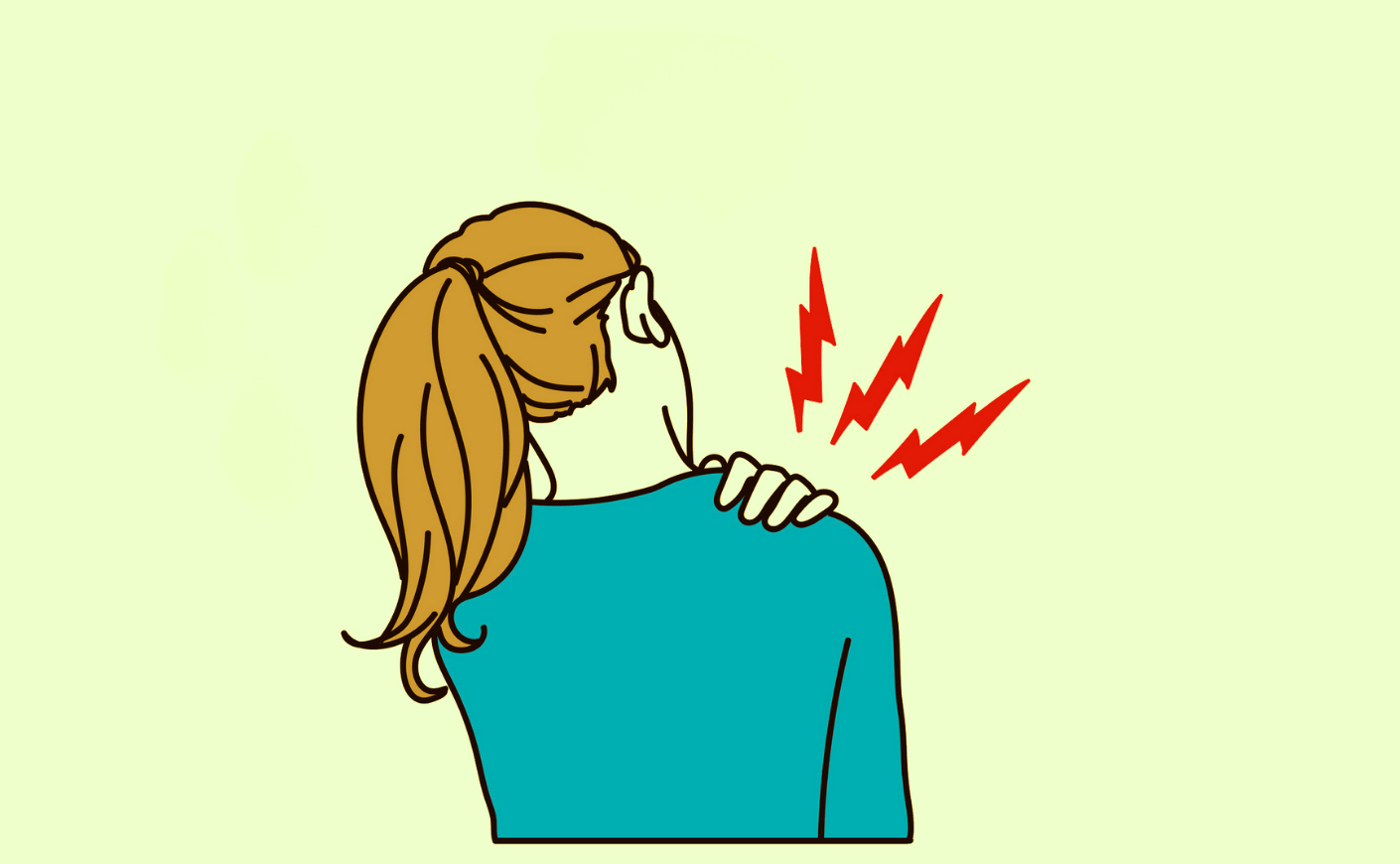Got an itch you can't keep scratching? It could be the result of dry skin — or, if you're like Katie, it could be something else entirely.
"I went to a dermatologist/allergist last year to get an allergy patch test, to find out what was causing my eczema to flare up," says Katie. "At the appointment, I casually mentioned that I had an itch right below my left shoulder blade that was driving me crazy. I just thought my skin was really dry there, but I couldn’t figure out why it was always in the exact same spot."
Katie was shocked to find out her itch wasn't just an itch at all: It was a symptom of a nerve condition with a pretty scientific-sounding name.
"I was shocked when Dr. Cohen told me it was a medical condition that impacts a lot of women," Katie says, "And that it actually has a name!"
What is notalgia paresthetica, otherwise known as the “unreachable itch”?
According to the National Library of Medicine, Katie's strange, impossible-to-quench itch near her shoulder blade is due to a condition called "notalgia paresthetica," which is often called "the unreachable itch." It's most commonly seen in women, in the form of exactly what Katie described: a seemingly unending itching sensation by the shoulder blade.
Itching isn't the only symptom of notalgia paresthetica, though. It's common to feel a burning or tingling sensation in that area as well. Why does this happen to begin with? Scientists think it has something to do with pressure or pinching of nerves in that area of the body.
As mentioned, it's super common for older adults, especially women, to experience notalgia paresthetica — and while we’ll get into treatment options below, it's worth noting that it's not deadly or even dangerous. Just extremely annoying.
It is, however, cause for concern if you see that same symptom presenting in a young child. According to the American Osteopathic College of Dermatology, if a child is experiencing the same symptoms, it could be a sign of a hereditary disorder called Multiple Endocrine Neoplasia 2A. For that reason, it's worth seeing a medical professional if there's a child in your life who has a never-ending itch by their shoulder blade.
Notalgia paresthetica treatment
There are a number of treatment options to consider if you think you might have notalgia paresthetica. Some require seeing a doctor, and some don't. But first things first: It sounds silly, but you might want to start moisturizing more frequently. Dry skin isn’t connected to notalgia paresthetica, but it is one of the more common causes of itchiness, so it’s good to rule that out before you look into more unusual diagnoses.
If your moisturizer regimen just isn't cutting it, though, it might be time to see a dermatologist or allergist (or both). When you see a doctor for itching, they might prescribe you any number of remedies, from an ingestible prescription like Gabapentin to a topical steroid cream.
Studies have shown that certain exercises could also help that annoying itch since stretching and moving your body can often help provide relief for pinched or inflamed nerves around your spine and shoulder blades. Per Healthline, here are some simple stretches you can try for relief:
· While standing, lift your shoulders, then slowly rotate them forward. Reverse the movement. Go back and forth a few times.
· Sit down, cross your arms across your chest, then bend forward to stretch your back.
Again, it’s important to remember that these itching spells aren’t dangerous — though you do risk major skin irritation from scratching so much, which could even cause bleeding and scabbing if you really get after it. It’s hard to stop scratching once you’ve started, but do try to keep your skin in mind while you’re dealing with one of these spells. Taking a hot, soothing bath, for example, could be a way to calm your irritated skin. But when all else fails, it might be time to give your partner a break and buy yourself a back scratcher, or that fancy moisturizer you’ve been eyeing as a self-care treat for years.









